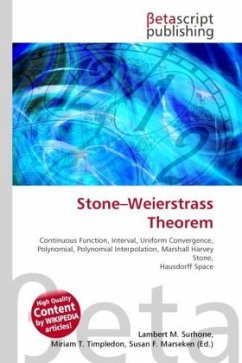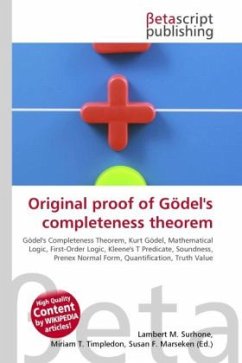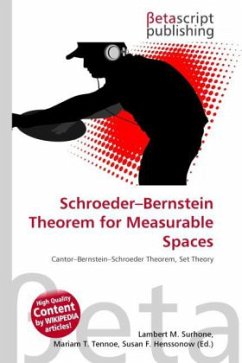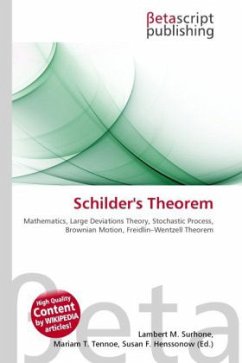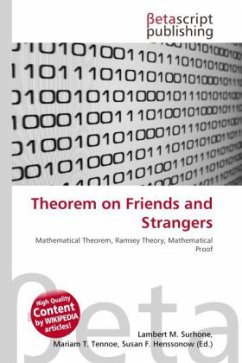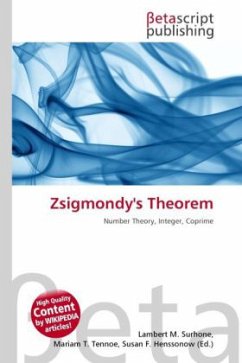
Wilkie's Theorem
Versandkostenfrei!
Versandfertig in 6-10 Tagen
23,99 €
inkl. MwSt.

PAYBACK Punkte
12 °P sammeln!
High Quality Content by WIKIPEDIA articles! In mathematics, Wilkie's theorem is a result by Alex Wilkie about the theory of ordered fields with an exponential function, or equivalently about the geometric nature of exponential varieties. Gabrielov's theorem applies to the real field with all restricted analytic functions adjoined, whereas Wilkie's theorem removes the need to restrict the function, but only allows one to add the exponential function. As an intermediate result Wilkie asked when the complement of a sub-analytic set could be defined using the same analytic functions that described...
High Quality Content by WIKIPEDIA articles! In mathematics, Wilkie's theorem is a result by Alex Wilkie about the theory of ordered fields with an exponential function, or equivalently about the geometric nature of exponential varieties. Gabrielov's theorem applies to the real field with all restricted analytic functions adjoined, whereas Wilkie's theorem removes the need to restrict the function, but only allows one to add the exponential function. As an intermediate result Wilkie asked when the complement of a sub-analytic set could be defined using the same analytic functions that described the original set. It turns out the required functions are the pfaffian functions.



